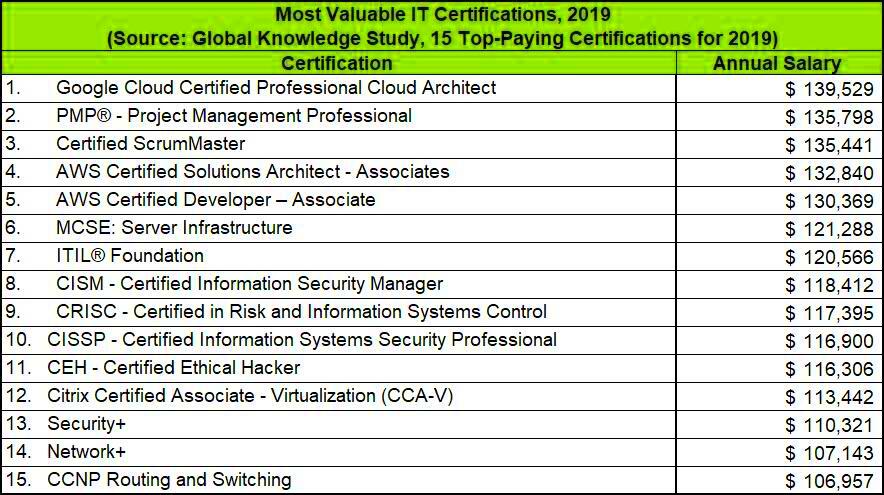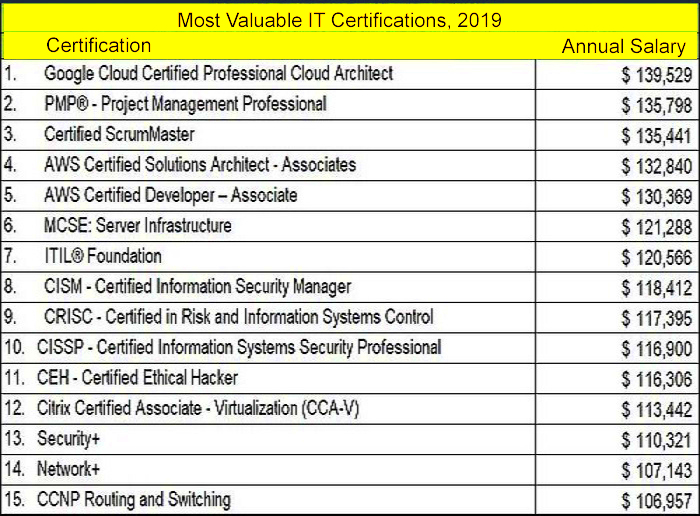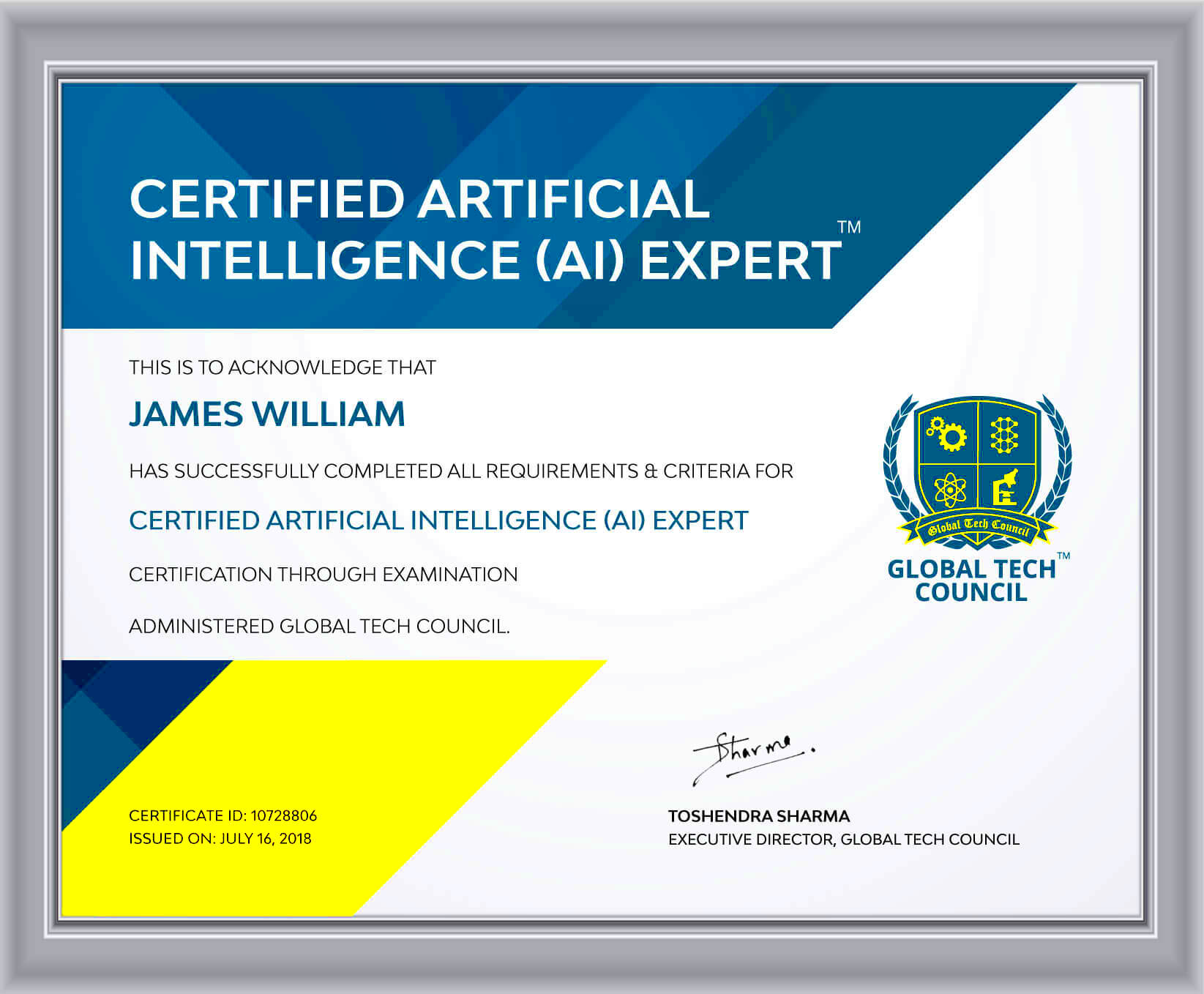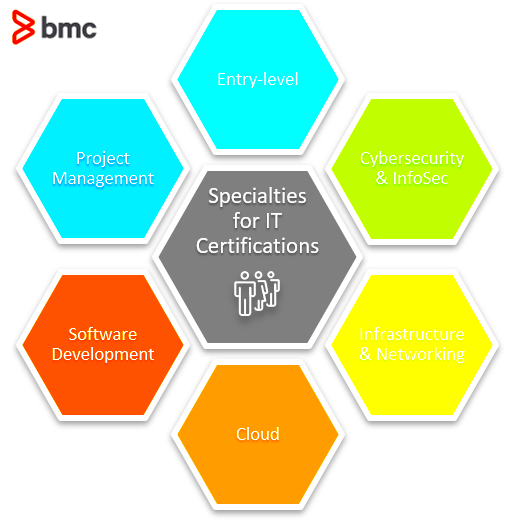In today’s fast-paced job market,
technology certifications have become more important than ever. They are not just fancy additions to your resume; they represent your commitment to continuous learning and professional growth. Employers often look for candidates who have updated skills and verified knowledge, and certifications are a reliable way to demonstrate that.Having a certification can also set you apart from the competition. It shows that you are proactive and have gone the extra mile to gain expertise in a specific area. With
technology evolving rapidly, being certified can help you stay relevant and open doors to new opportunities.Here are a few reasons why certifications are valuable:
- Increased Job Opportunities: Many employers prefer certified candidates.
- Higher Salary Potential: Certified professionals often earn more than their non-certified peers.
- Networking Opportunities: Joining certification programs can connect you with industry professionals.
Top Certifications for IT Professionals

When it comes to advancing your career in IT, certain certifications stand out. Here are some of the top certifications that can help you boost your career:
| Certification | Focus Area | Provider |
|---|
| CompTIA A+ | IT Fundamentals | CompTIA |
| Microsoft Certified: Azure Fundamentals | Cloud Computing | Microsoft |
| Cisco Certified Network Associate (CCNA) | Networking | Cisco |
| ITIL Foundation | IT Service Management | AXELOS |
These certifications cover a wide range of IT skills, from basic hardware knowledge to advanced cloud computing concepts. They can provide you with the foundational knowledge needed to excel in your IT career.
Best Cybersecurity Certifications to Consider

As cyber threats continue to rise, the demand for cybersecurity professionals is skyrocketing. Obtaining relevant certifications in this field can significantly enhance your career prospects. Here are some of the best cybersecurity certifications you should consider:
Cloud Computing Certifications That Stand Out

Cloud computing has transformed the way businesses operate, making it one of the most in-demand fields today. As more organizations shift their operations to the cloud, there is a growing need for skilled professionals who understand cloud technologies. Pursuing cloud computing certifications can enhance your skills and make you an attractive candidate for many job roles.Here are some notable cloud computing certifications that can help you stand out:
| Certification | Focus Area | Provider |
|---|
| AWS Certified Solutions Architect | Architecting on AWS | Amazon Web Services |
| Microsoft Certified: Azure Solutions Architect Expert | Designing Azure Solutions | Microsoft |
| Google Cloud Professional Cloud Architect | Architecting on Google Cloud | Google Cloud |
| Certified Cloud Security Professional (CCSP) | Cloud Security | (ISC)² |
These certifications cover various aspects of cloud computing, from architecture and design to security. By earning one or more of these credentials, you can showcase your expertise and readiness to tackle the challenges of cloud environments.
Programming and Development Certifications for Career Growth
In the tech world, programming skills are highly sought after. Whether you're looking to break into the industry or advance in your current role, earning programming and development certifications can help you stand out. These certifications validate your skills and show employers that you are committed to your craft.Here are some popular certifications to consider:
| Certification | Focus Area | Provider |
|---|
| Certified Java Developer | Java Programming | Oracle |
| Microsoft Certified: Azure Developer Associate | Cloud Development | Microsoft |
| Certified Kubernetes Administrator (CKA) | Kubernetes Management | Linux Foundation |
| AWS Certified Developer | Application Development on AWS | Amazon Web Services |
These certifications can give you an edge in the job market, as they demonstrate your programming knowledge and your ability to build and manage applications. Investing in your skills through these certifications can significantly impact your career growth.
How to Choose the Right Certification for Your Career
Choosing the right certification can feel overwhelming, especially with so many options available. It’s essential to consider your career goals, current skills, and the job market in your area. Here are some tips to help you make the right choice:
- Assess Your Career Goals: Think about where you want to be in the next few years. Do you want to specialize in a particular area or broaden your skills?
- Research Industry Demand: Look for certifications that are in high demand in your desired field. Job boards and industry reports can provide valuable insights.
- Consider Your Current Skills: Choose a certification that aligns with your existing knowledge. Starting with a foundational certification can be a smart move.
- Look for Reputable Providers: Make sure the certification comes from a well-known provider. Recognized certifications hold more weight in the job market.
By taking these steps, you can make an informed decision that aligns with your career aspirations and sets you on the path to success.
Frequently Asked Questions About Technology Certifications
Technology certifications can be a confusing topic for many. Here are some common questions and answers to help clarify what you need to know:
What are technology certifications?
Technology certifications are credentials earned by professionals to demonstrate their expertise in specific areas of
technology, such as cloud computing, cybersecurity, or programming. They often require passing an exam and sometimes completing training courses.
Do I need a degree to get certified?
No, a degree is not always necessary to obtain a certification. Many certifications focus on practical skills and knowledge rather than formal education. However, having a degree can complement your certifications and enhance your job prospects.
How long does it take to get certified?
The time it takes to earn a certification varies widely depending on the program. Some certifications may require only a few weeks of study, while others may take several months. It's essential to review the specific requirements for each certification you are interested in.
Are certifications worth the cost?
While certifications can require a financial investment, they often lead to higher salary potential and better job opportunities. Many professionals find that the return on investment is worthwhile, especially in fast-growing fields like IT and cybersecurity.
How often do I need to renew my certification?
Most
technology certifications require renewal every few years. This may involve retaking the exam, completing continuing education credits, or paying a renewal fee. Be sure to check the requirements for each specific certification.
Conclusion: Advancing Your Career with the Right Certification
In today's competitive job market, technology certifications can be a game-changer for your career. They not only enhance your skills and knowledge but also demonstrate your commitment to professional growth. By carefully selecting the right certifications, you can open doors to new opportunities and take significant steps towards advancing your career in the ever-evolving tech landscape.
 When it comes to advancing your career in IT, certain certifications stand out. Here are some of the top certifications that can help you boost your career:
When it comes to advancing your career in IT, certain certifications stand out. Here are some of the top certifications that can help you boost your career: As cyber threats continue to rise, the demand for cybersecurity professionals is skyrocketing. Obtaining relevant certifications in this field can significantly enhance your career prospects. Here are some of the best cybersecurity certifications you should consider:
As cyber threats continue to rise, the demand for cybersecurity professionals is skyrocketing. Obtaining relevant certifications in this field can significantly enhance your career prospects. Here are some of the best cybersecurity certifications you should consider: Cloud computing has transformed the way businesses operate, making it one of the most in-demand fields today. As more organizations shift their operations to the cloud, there is a growing need for skilled professionals who understand cloud technologies. Pursuing cloud computing certifications can enhance your skills and make you an attractive candidate for many job roles.Here are some notable cloud computing certifications that can help you stand out:
Cloud computing has transformed the way businesses operate, making it one of the most in-demand fields today. As more organizations shift their operations to the cloud, there is a growing need for skilled professionals who understand cloud technologies. Pursuing cloud computing certifications can enhance your skills and make you an attractive candidate for many job roles.Here are some notable cloud computing certifications that can help you stand out:
 admin
admin








